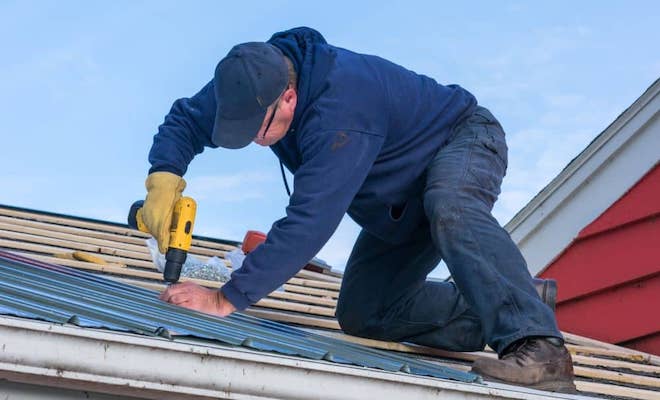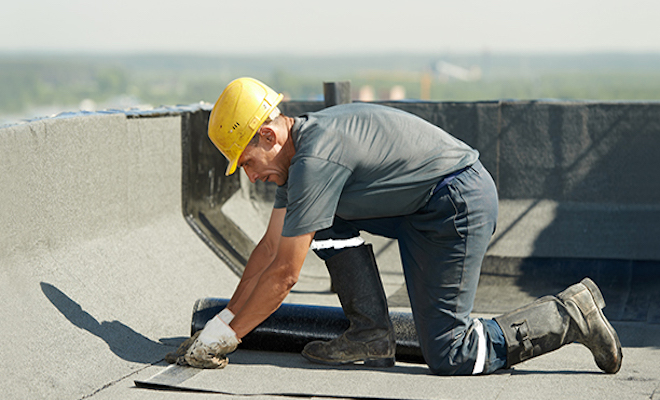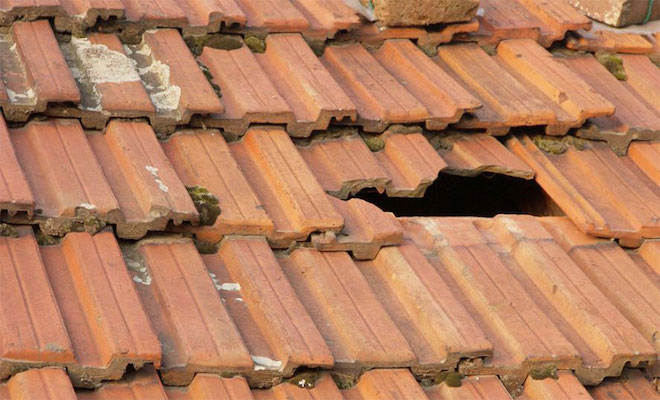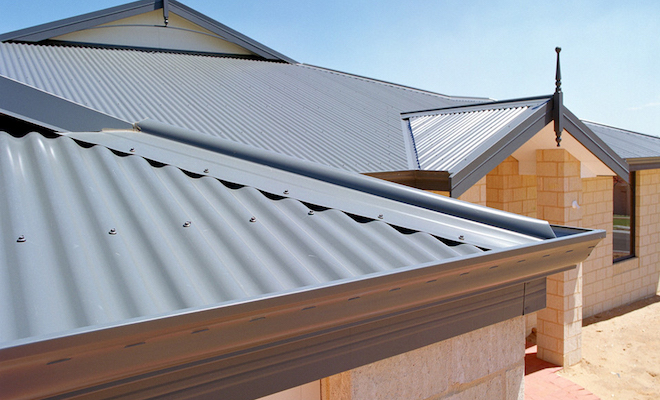How Much Does a Roofer Cost?
Last updated 2nd July, 2025
Looking into how much a roofer costs in the UK?
This guide has everything you need! Below, we break down how much a roofer charges per hour, typical roofer day rates, emergency roofer costs, and more!
Let's begin!

Table of Contents
Quick Summary: Average Roofer Costs in 2025
The average cost of a roofer will depend on your location within the UK. However, as a countrywide average expect to pay between £250-£300 for a team of two roofers, while prices in London will be substantially higher due to the difference in overheads.
A roofer will rarely if ever work alone. Due to the nature of the job, he will need to have someone on-site to carry materials up to the roof, so he does not spend all day up and down ladders and scaffolding.
From a safety point of view, a roofer shouldn't work alone due to the risks involved.
Roofer Costs
Roofer cost per hour will depend on the area that the roofer works in, the level of experience, and any specialisation that they offer. Ease of access to the roof will also contribute to the amount that a roofer will charge.

Overhead costs will affect most trades, and these are normally highest in London and the southeast of the UK. This will be reflected in the higher hourly rates that roofers in the capital and surrounding areas will charge.
The nature of the work can also increase the rate as more skilled tasks such as working with zinc or other metal roofing demand higher prices. Zinc roofing typically involve standing seams, a skill that not every roofer will possess so will come at an additional cost.
Roofer Hourly Rate
The average roofer price per hour is £20-£30. For roofers in areas such as Birmingham and Manchester, the average cost is £15-£25 per hour. In London, the roofer cost per hour can rise to £30-£50 or more depending on the specific area.
Neat lead work is also a sought-after skill, especially on heritage buildings and will command higher hourly rates than tiling a roof.
Roofers will typically work a 7-8-hour day; however, their schedule can be disrupted by the weather, unlike some indoor trades. High winds, icy conditions and heavy rain can impact a workday, and most roofers will be unable to work in these situations.
Roofer Daily Rate
A roofer cost per day will also depend on the area they work in, whether they have any particular specialisations and ease of access to the roof. The average roofer price per day is between £150-£250 according to location and expertise.
The roofer price per day will depend on the type of work being done. If it is stripping a roof to replace the tiles or slates, the cost will be around £150-£200 per day. To replace the roof covering and the timber sub-structure, this will be approximately £200-£300 per day.
In London, the average cost to hire a roofer will be at the upper end of the scale and depending on the type of work that you need to have done the daily price can be as high as £250-£350 per day. For other parts of the UK such as Birmingham or Manchester, the roofer price per day may be around £120-£150.
Emergency Roofer Costs
The most common emergency roof repairs are storm damage, impact damage, fire damage, criminal damage, and accidental damage. Pitched and flat roofs are both at risk from all these types of damage, but the emergency roof repairs to fix them will differ.
Attempting to do DIY emergency roof repairs is not advisable due to the skills and danger involved.
Cost of Emergency Roofing
As with any trade that offers an emergency call-out service, the price for this should be clearly stated at the time of booking, and it should also be apparent what the call-out charge entails.
The job may be to attend at short notice or include a temporary repair until a permanent solution is put in place. Full repairs will generally be an additional and separate cost.

Safety in Emergency Roofing
For any type of roof repair, a roofer's safety is of primary importance. Bearing this in mind if an emergency roof repair is needed in the middle of a storm or during the night, a temporary solution will be required in the interim.
A tarpaulin may be put in place or containers to catch water ingress until either the storm has passed or there is sufficient daylight for the roofer to work safely. Attempting to do a DIY repair on your roof at night or during a storm is not advisable, and it is much more prudent to wait for an emergency roofer.
Timeframes for Emergency Roofing
Depending on the type of damage and the roofing material, the cost and timeframes for different emergency repairs will vary. Roofer prices will vary according to the area they work in, their experience or speciality and the type of repair they need to carry out. Some will charge a set price for repairs, and others will charge by the hour or day depending on the damage.
Small repairs such as missing or damaged tiles should only take 2-4 hours to fix and usually cost no more than £100-£300. More extensive damage may take a few days to put right, and the cost can run to hundreds or even thousands of pounds. An emergency repair in London could cost more than £130 per hour if it involves out of hours work.
Roofer Qualifications
Most roofers will learn their skill on the job as an apprentice learning from a more-experienced worker. This route can take some years before being recognised as a competent roofer in their own right.
There are, however, still a number of formal qualifications and recognitions to look out for when hiring a roofer yourself:
- Apprenticeship training – As mentioned, this is on-the-job learning under an experienced roofer.
- NVQ Level 2 in Roofing Occupations – Entry-level qualification for roofers.
- NVQ Level 3 in Traditional Metal Roofing – For specialising in zinc or copper roofs.
- Lead Sheet Training Academy qualifications – For specialising in lead roofing.
- Thatch roofing courses from the National Heritage Training Group (NHTG) – For specialising in thatched roofs.
- Registration with the National Federation of Roofing Contractors (NFRC) – Specialist professional association for roofers.
As well as looking for the above, when hiring a roofer it's worth asking for recommendations or searching online for reviews and examples of work carried out to a professional standard.
Roofer Insurance
All tradespeople should have appropriate insurance and roofers are no different. In fact, as roofing is one of the most dangerous trades in construction, it is even more important that a roofer has the following insurance in place:
- Public Liability Insurance – Covers injury or damage to a member of the public caused by the roofer's work (e.g. falling tiles damaging property or injuring someone).
- Employer’s Liability Insurance – Mandatory for roofers who employ anyone outside of their family; covers illness or injury to employees resulting from their work.
Failing to have insurance can result in a tradesman being fined £2,500 per day and an additional £1,100 fine if a certificate cannot be produced when requested. As such it's worthwhile checking, as any reputable roofer will be happy to confirm they have their insurance up-to-date

Roofer Cost Summary
When looking to hire a professional roofer, the cost will vary depending on the nature of the job required. For example, replacing a couple of broken tiles may be relatively straightforward, whereas a whole roof is another story - one that can be determined by the size and style of the building.
| Job Description | Estimated Cost |
|---|---|
| Replacing Broken Roof Tiles | £100 – £300 |
| Re-cementing Roof Ridge Tiles | £150 – £350 per day |
| Repairing or Replacing a Flat Roof (per hour) | £20 – £25 |
| Replacing a Flat Roof | £250 – £300 |
| Repairing or Replacing a Roof Valley | £175 – £300 |
| New Roof (Replacing Tiles or Slates) | £1,250 – £1,500 |
| New Roof (Full Replacement) | £2,500 – £3,000 |
| Replacing Leadwork Around a Chimney | £150 – £250 per day |
When receiving a quote for a job, ensure everything is covered and it's always worth shopping around for more than one estimate. Also, remember the above prcies are only estimates, and can vary depending on the size and location of the job itself - for example roofers in central London are likely to be considerably more expensive than in a rural village.
Roofer Jobs
There are many jobs that may require a roofer, however, below we shall take a look those already outlined in our cost summary. Although be mindful that the timeframe, skill and labour involved in each of these tasks will significantly affect the overall cost.
Replacing Broken Roof Tiles
When replacing broken roof tiles, one of the first steps is to source a roof tile that matches the existing one as closely as possible.
Commonly used tiles can often be found at a roofing supplier, some of which may be reclaimed from previous roofing work or demolitions, which is ideal for replacement stock old - likewise if you need to source a discontinued design.
Depending on the number of broken roof tiles to be replaced the work should take between 2-4 hours with an average cost of £100-£300 for a roofer.

Re-cementing Roof Ridge Tiles
Ridge tiles are an essential part of the roof's weatherproofing as they are at the highest point of the roof, which can be an access point for rainwater. Therefore, when re-cementing roof ridge tiles they must be adequately bedded in and secured.
Roofer prices to carry out this work will be determined by location in the UK, access to the roof, and how many tiles need to be re-cemented. On average this should be a days work, weather depending, with a roofer cost of around £150-£350.
Ridge tiles are typically curved or triangular tiles that sit on the apex of a roof. They often bear the brunt of bad weather and may over time become loose as the cement they are bedded into deteriorates. When this happens, the ridge tiles will need to be removed and re-cemented into place.
Since changes to Building Regulations in 2015 ridge tiles also have to be mechanically fixed regardless of whether they are bedded in mortar, this is also the case when repairing existing ones.
Replacing/Repairing a Flat Roof
The first point to address with replacing or repairing a flat roof is the type of material required. This could be felt, rubber or glass reinforced plastic (GRP). Depending on the material and design, you may need a specialist.
This specialisation may affect the price a roofer charges per hour or day and the length of time that the repair or replacement takes, although normally this sould only be a couple of hours work unless there are any complications.
A full replacement of a flat roof will cost around £250-£300 depending on size and materials involved, whereas to repair a flat roof will be between £20-£25 an hour. The cost of emergency roof repairs for a flat roof will depend on the extent of the work, the type of roof covering, and the roofer's availability.

Repairing/Replacing a Roof Valley
The roofer costs to repair or replace a roof valley will be between £175-£300 with a repair typically taking 4-6 hours and a replacement 6-8 hours.
The roof valley is the channel that is formed where two sloping planes of a roof meet and feeds rainfall into the gutter. These valleys can be constructed from concrete tiles, lead or fibreglass, but they may break down and need repair or complete replacing over time.
The tiles around the valley will need to be lifted, and it is a labour-intensive job. If the valley itself is in good repair, it may be the cement that it is bedded into that needs to be repaired. Once done, the valley can then be replaced.
New Roof
A new roof cost will depend largely on the type of material used as well as the surface area covered.
Replacing the tiles or slates on a roof may take a week or so, but if it is necessary to replace the battens, membrane or even the rafters, the job becomes a lot bigger and will take much longer.
Just replacing tiles or slates will take around a week and the roofer costs will be approximately £1,250-£1,500.
To replace the whole roof, including the timber structure and membrane will take at least two weeks and cost in the region of £2,500-£3,000 in roofer costs. These prices are just for labour and do not include any material costs.
Location will also affect the price and of course the labour cost with roofers charging more in and around London compared to other parts of the UK.

Replacing Leadwork Around a Chimney
The roofer cost per day to replace leadwork around a chimney will be around £150-£250 and the work should take no more than one day, weather permitting.
Fitting lead around a chimney is done in three ways for different areas of the chimney:
- Lead apron – A large piece of lead on the front of the chimney that creates a waterproof joint between the chimney and the roof.
- Step flashings – Cut onto the sides of chimney to fit into the roof’s slope, providing a neat and secure finish along the sides.
- Lead back gutter or back box – Fitted to the rear of the chimney to ensure water drainage and a complete seal.
To replace lead around a chimney requires skill and done correctly, it will outlast the roof itself. Problems with lead and the need to replace it are rarely due to the lead itself and more commonly a problem with how it was originally fitted.
How to Find and Hire a Roofer Near You
If you need to have work done on your roof, you will want to find a reputable and competent roofer. Personal recommendations from family, friends or neighbours is an excellent way to find a trustworthy contractor, or you could try a relevant trade association.
An online search of 'roofer near me' will produce lots of results, but you will need to filter through them to find a reliable roofer.
Qualifications
A roofer will not normally have formal qualifications although most will have done NVQ Level 2 training as an apprentice and, for specialisations, Level 3. The qualifications of a good roofer are the results of his work gained through years of experience and acquired knowledge and skill.
Accreditations
Membership of the National Federation of Roofing Contractors is a good indication of a skilled, competent roofer and should instil confidence in their ability, and reputation. Joining this Federation means undergoing vetting and being subject to checks every three years.
Not only do members of the NFRC have to adhere to the Federation's code of practice but must also hold employer's liability insurance and public liability insurance and following Health and Safety guidelines.
Insurance
Any roofer working on your roof should have appropriate insurance, including public liability insurance and employer's liability insurance if they have employees. It would be best if you asked for details of insurance before letting anyone work on your roof.
Reviews
If you have received a personal recommendation for a roofer, you may be able to look at the finished work and ask previous clients about quality, cost, timeframe, and safe work practices. Looking at reviews from online platforms should be done with a certain amount of caution. Anyone can write a review, and there is no way for you to know if it is genuine or not.
Previous Experience
An established and reputable roofer will have a lot of previous experience, giving confidence to any prospective client. You can ask about other work that they have carried out in the area that may be familiar to you perhaps for a neighbour.
Previous experience should also be apparent in their knowledge of the work, Building Regulations and local planning laws.
Experience of Specific Work
Ask about work they have done before, which may be relevant to your roofing job. While roofers will have a general shared work experience, there are specialisations that do not apply to all. For example, not all roofers will work on flat roofs or do things like torch-on felt work.
Similarly working with metal roofing or GRP may not fall into the remit of the roofing contractor you are considering. So, it is worth checking in advance that they have prior knowledge and experience of the specific work that you want to be carried out on your roof.
Quotations
The principle of obtaining at least three quotes from tradespeople for work that you want doing also applies to roofers. Even if you have been given a recommendation, it is still advisable to compare the prices and services offered locally.
An important distinction also needs to be made regarding quotations and estimates. A quotation is an agreed fixed price that a contractor will do work for based on their assessment of the job. An estimate is an approximate price that may change.
Technically a roofer will give an estimate as it will be almost impossible for them to fully assess the work to be done until the roof coverings have been removed.
FAQs
The slate size will determine how much coverage they give, e.g., a square metre will be covered by 25 x 400mm x 375mm slates whereas it would take 20 x 500mm x 375mm tiles and 13 x 600mm x 300mm slates.
An experienced roofer will work more quickly than someone newer to the job, and the speed of laying slates will determine the quality of the finished roof.
They install guttering and other roofline products such as fascia and soffits as well as lead work for flashings around chimneys and in roof valleys. They carry out repairs and also do cleaning tasks such as gutter clearing or removing moss from roofs.
The source of the slate will also affect the longevity with Welsh and Cornish slate being much more durable with a lifespan of 200 years or more. Imported slate which has a different mineral content has a lifespan of around 50 years. Clay tiles will last 60-100 years depending on the grade of the tile. Concrete tiles have a lifespan of about 50 years.
It is not recommended that a power washer is used on a roof as it can cause damage to the roof tiles, slates or cement mortar keeping ridge tiles in place.
Checking the interior ceilings on your first floor can also alert you to a leak or hole in your roof if there is visible staining. Damp on internal walls is often a sign of problems with guttering that are either blocked or broken. If your roof starts to visibly sag, then there is a severe issue that should be addressed immediately.










